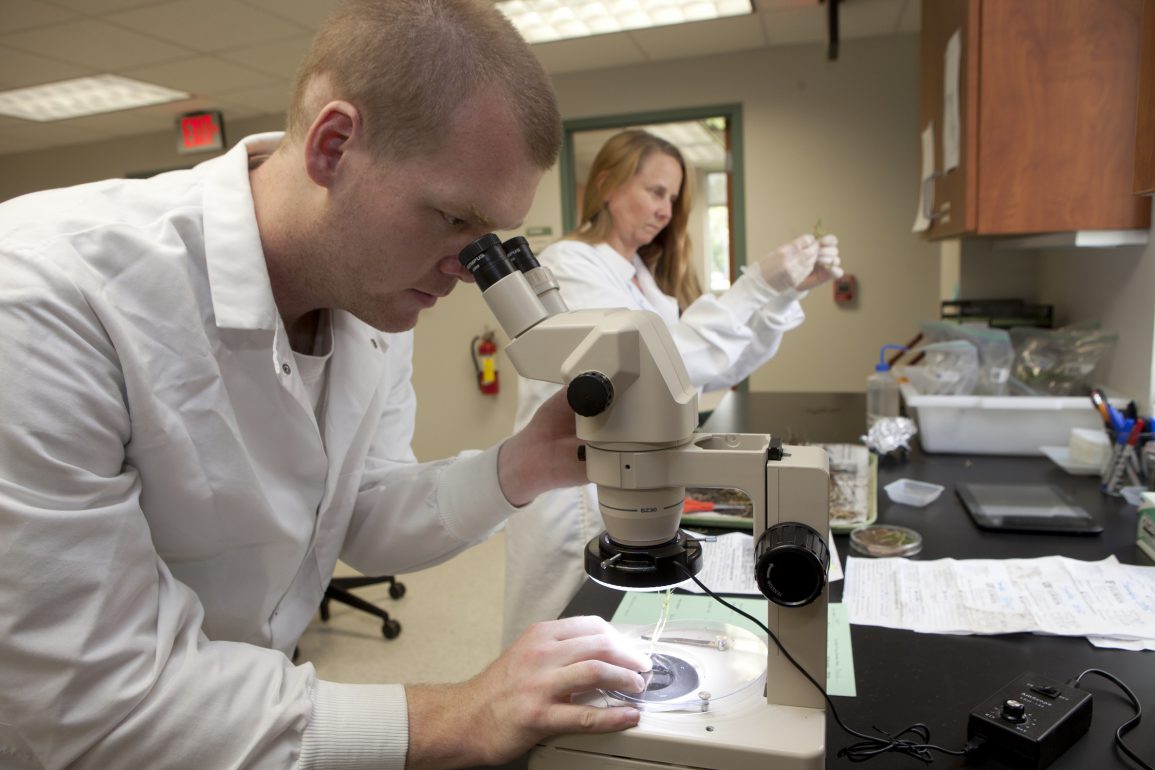Fifteen early career scientists at the University of Florida Institute of Food and Agricultural Scientists have been awarded grants to help solve global issues such as thwarting invasive pests, improving crop varieties, battling citrus greening and preserving our environment.
The faculty members will receive about $50,000 each as part of UF’s Early Career Scientist Seed Fund program to help develop new faculty research, said Jackie Burns, UF/IFAS dean for research.
UF/IFAS works with the UF vice president for research on the program.
“This year’s competition was highly competitive, with 25 early career scientists presenting excellent proposals,” Burns said. “After a rigorous review by a panel of UF/IFAS scientists, I am pleased to announce 15 awards. The research projects represented by these awards demonstrate the breadth of UF/IFAS research programs.”
The awarded 2017 Early Career Seed Funding Proposals are:
- Brian Bahder; entomology and nematology/Fort Lauderdale Research and Education Center (REC). “Potential insect vectors and genetic diversity of palm-infecting phytoplasmas in the Caribbean basin.
- Mathieu Basille; wildlife ecology and conservation/Fort Lauderdale REC; “Ecological flows in human-dominated landscapes: individuals, genes, and pathogens.
- Alan Chambers; horticultural sciences/Tropical REC; “Innovating tropical fruit improvement through consumer-friendly biotechnology.”
- Adam Dale; entomology and nematology; “The effects of turfgrass diversity on arthropod pests and biological control in urban landscapes.”
- Young Gu Her; agricultural and biological engineering/Tropical REC; “Development of a simulation tool for holistic assessment of climate change and sea level rise impacts on South Florida’s agriculture and hydrology.”
- Basil Iannone; School of Forest Resources and Conservation; “Evaluating the contribution of biotic complexity to pest control in ornamental plant communities.”
- Seonghee Lee; horticultural sciences/Gulf Coast REC; “Development of CRISPR/Cas gene-editing technology in strawberry.”
- Tong Geon Lee; horticultural sciences/Gulf Coast REC; “Development and deployment of a genomics pipeline for rapid detection of structural variation in plant genomes.”
- Amit Levy; plant pathology/Citrus REC; “Role of vesicle trafficking, callose and calcium in the interactions of Candidatus Liberibacter asiaticus with host plant and the Asian Citrus Psyllid.”
- Hui-Ling (Sunny) Liao; soil and water Sciences/North Florida REC; “An emerging strategy (Combined Metaomics & CRISPR) for the study of ectomycorrhizal symbiosis between Suillus and Pinaceae, with emphasis on their roles in fungal-plant cross talk and nutrient cycling.”.
- Brandon McFadden; food and resource economics; “Using eye tracking to determine the effectiveness of the updated nutrition facts panel.”
- Justin Renkema; entomology and nematology/Gulf Coast REC; “Developing molecular tools to determine impacts of beneficial invertebrates in Florida small fruit agroecosystems.”
- Sarah Strauss; soil and water Sciences/Southwest Florida REC; “Impact of propagation method on citrus rhizosphere development.”
- Christopher Vincent; horticultural sciences/Citrus REC; “Primed acclimation of citrus to improve resistance to Candidatus Liberibacter asiaticus.”
- Yu Wang; food science and human nutrition/Citrus REC; “Bioactivity-guided identification of adipogenesis inhibitors in the Huanglongbing (HLB) infected orange.”

